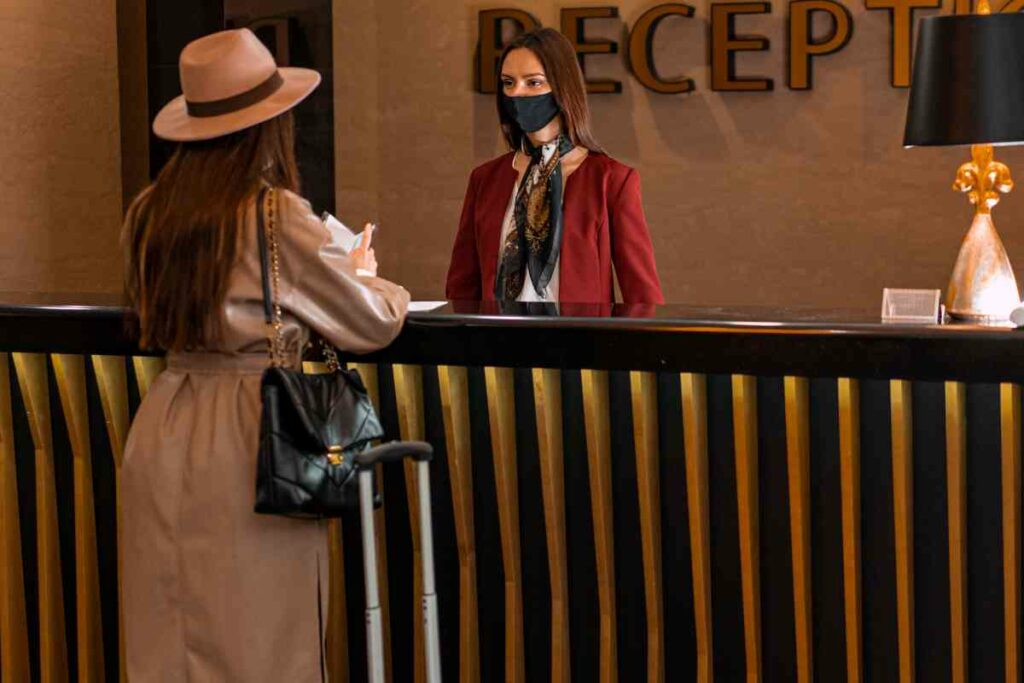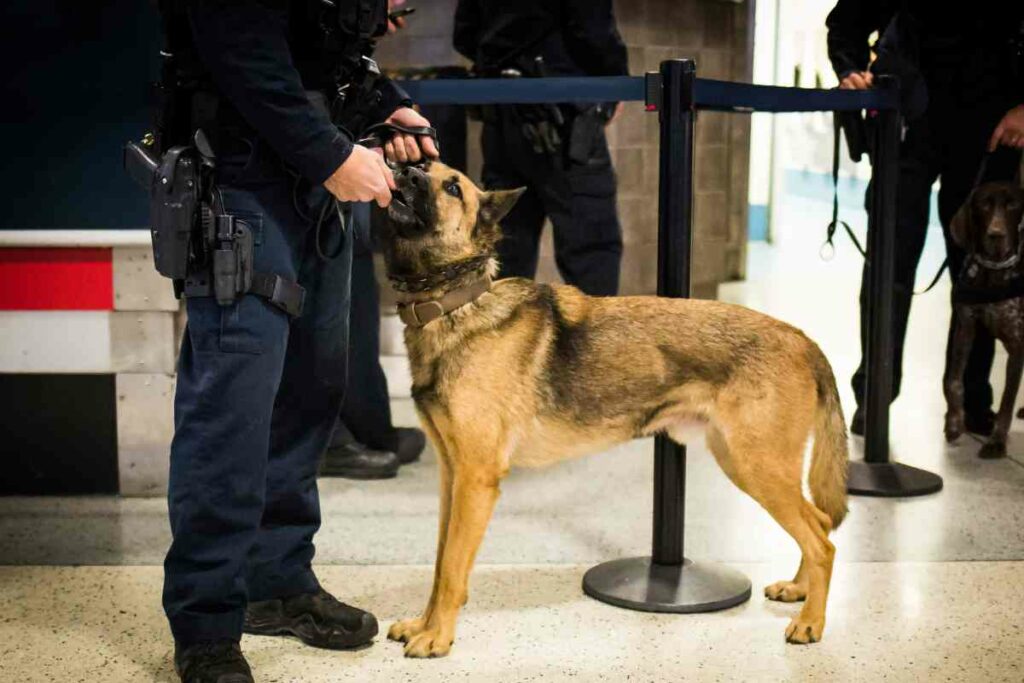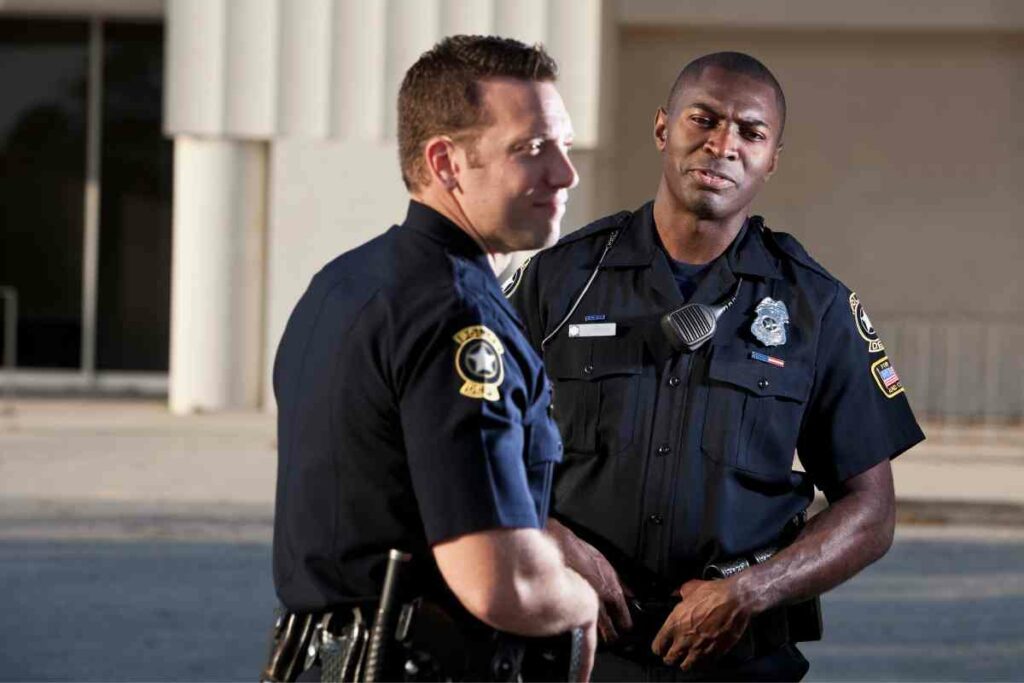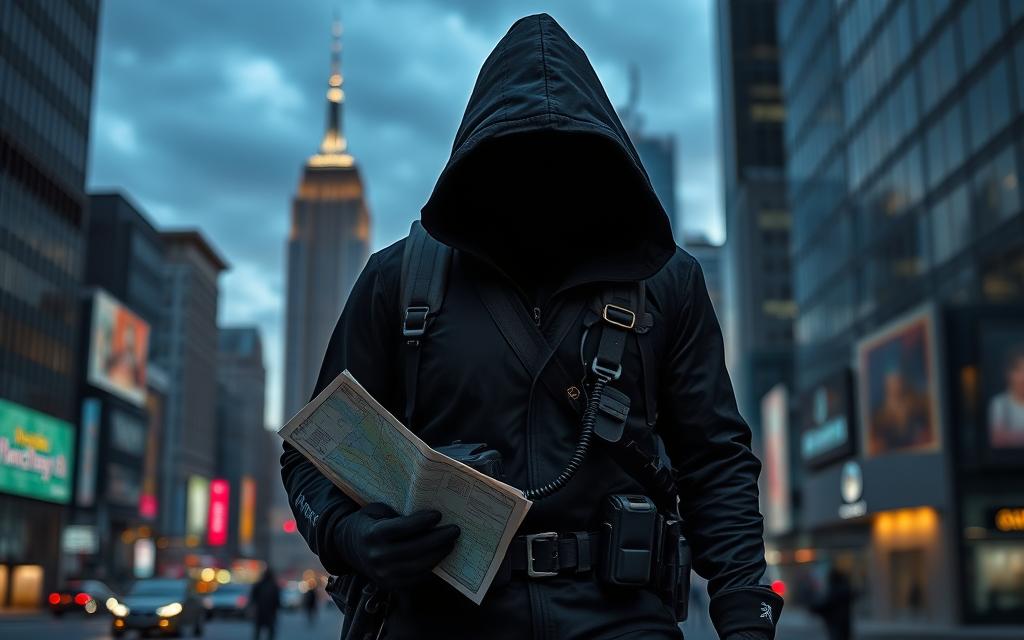When you book a hotel room, you automatically give the hotel certain personal information.
Usually, this includes your full name, date of birth, address, telephone number, email address, and payment details.
When you check into the hotel, all of this information is associated with the room where you’re staying.
But what happens when the police come knocking?
Can hotels give them your information if they ask for it?
Let’s take a look!
What Guest Information do Hotels Have?
Many people reserve their hotel rooms without giving it a second thought.

They store their personal info on apps and book rooms in a couple of clicks.
Hotels have to abide by rules and regulations when it comes to storing and using data.
For Example – All people in the European Union are protected by the GDPR – the General Data Protection Regulation.
Information such as an email address, IP address, name, address, phone number or booking reference number is what’s called “personal data.”
Extra “sensitive” data may also be revealed to hotels, and this affords protection too.
This data includes:
- Trade union memberships – hotels may have this information if the person is attending a specific event at the hotel, for example.
- Biometrics – fingerprints to open room doors in some hotels.
- Health status – if someone discloses medical information whilst they are staying, such as a food allergy or if they need certain requirements due to their disabilities for example.
- Their sexual orientation – this is not often asked or disclosed, but some guests may disclose it through guest requests.
It’s this data that hotels need to be mindful of using and revealing to the authorities if they are asked.
How Can Hotels Protect the Privacy of Their Guests?
All establishments such as hotels usually have privacy notes which should be updated regularly.

They should also speak to guests when they check in if there is anything specific they wish to ask permission for, such as if they can keep their email address on file for future marketing campaigns for example.
Hotels take their guests’ privacy extremely seriously – or they should.
This is why you’ll find it difficult to find out who is staying in a particular hotel if you phone and ask.
However, it is slightly different when it comes to the police trying to find out guest information if they believe someone is in danger or if a crime has been committed.
What should Hotels Do If They Are Asked for Guest Information?
When a hotel is faced with the dilemma of a police officer asking for guest information, it can be difficult for them to know what to do.

Hotels often put the following things in place to ensure that the proper protocol is followed and that guest information is not given out freely to the wrong people.
Have a Designated Person who Responds to Information Requests
Most hotels have a senior member of staff who deals with requests from the authorities.
Usually, this is the hotel manager or the duty manager if the manager is not available.
If there’s a visit from the police and a manager with this authority is not available, there is usually a chain of command that hotel staff follow to ensure that they are keeping guest information private as much as is permissible within the law.
Training Front-line Staff
Front-line staff, usually hotel receptionists, admin staff, security staff and managers should be well-trained in what to do should a situation arise where the police are asking for guest information.

If staff are well-trained, they will all know what to do in the event of an emergency and will be able to follow the chain of command as to whether they are permitted to share information with those asking for it.
Ask for Law Enforcement Requests and Paperwork
When faced with a police officer at the front desk asking for guest information, the reception staff should be mindful of who is asking and why they’re asking.
In this regard, they should ask if the police have a warrant or other paperwork to give them access to the information.

If they don’t have one, they usually muster one up pretty quickly.
It’s always wise to comply with police requests for information, but hotel staff should always check that the paperwork is in place before they do to ensure that they cover their own backs when it comes to sharing information.
For Example
A random person from the street cannot show up at a hotel and demand to know if you’re staying there, but the police can turn up and ask those questions.
When dealing with such requests from the authorities, time is often of the essence and so hotel staff should act appropriately and quickly. Quite often, it’s on a case-by-case basis.

If the police think there’s a kidnapper in room 104, you’re well within the law to let them into the room to check.
Keep In Mind – Failure to comply with police requests can lead to an offense or a misdemeanor, so it’s always sensible to comply. Helping the police by giving out information is often a big help to the case. It could even save someone’s life.
Final Thoughts
So, can hotels give out your private information? Is it legal if they do? Yes, hotels can give out personal information, but only if it’s asked for in the right way.
- Hidden Gems vs Tourist Spots: Saving Pounds on Your Next Vacation
- Master the Art of Travel Thrifting: Tips from the Pros
- Travel Like a Spy: Secret Skills for Safe Adventuring
- The Hidden Tourist Traps: 5 Costly Scams to Avoid Abroad
- Luxury vs. Budget Travel: Uncover Odd Similarities
- The World’s Most Scenic Airport Landings






